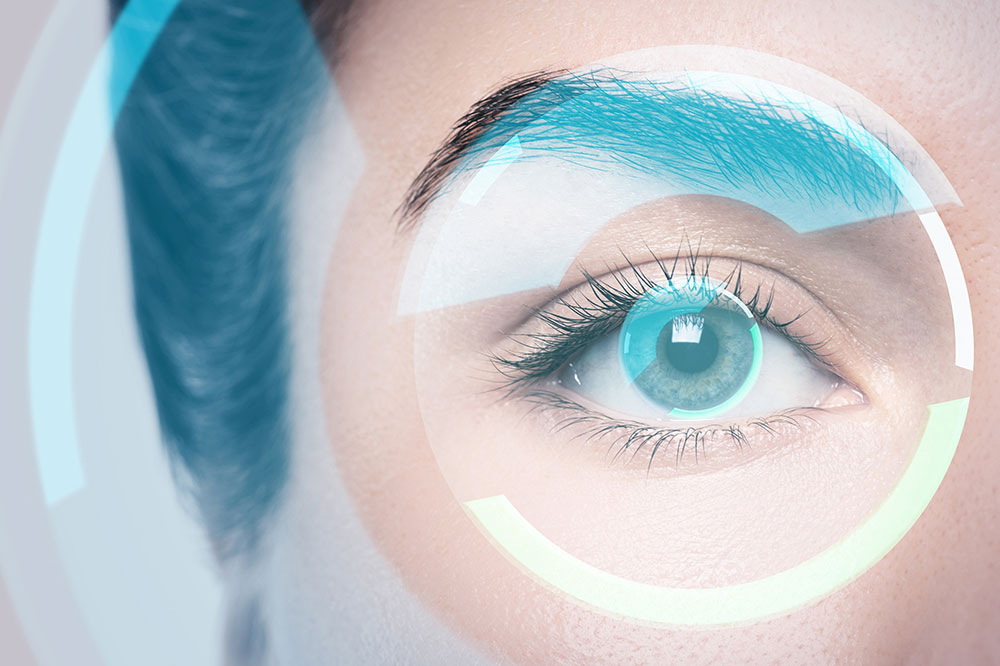
8 simple tips for improved vision
Many often overlook vision care as an important part of their healthcare routine. It only becomes a priority when one’s vision is affected. For instance, problems like sudden blurry vision, dry eyes, or eye pain can easily be prevented by regular eye checkups. Also, incorporating certain healthy habits in one’s everyday routine can help in taking better care of eye health. Here are a few tips for improved eye care.
Check the family’s history of health issues
Several eye conditions are passed down through genes from one generation of the family to the next. For example, there is a high chance of macular degeneration if one of the parents or grandparents or any siblings of an individual has this condition. Similarly, glaucoma is another eye condition that is more likely to occur if a close family member has it. So, one must thoroughly check the family history to understand the eye conditions or any other health issues the family members might have had. This will help one watch out for these conditions and facilitate early diagnosis.
Go through a comprehensive dilated eye checkup
Many eye conditions do not have any early warning signs, which makes diagnosis difficult. Only a comprehensive dilated eye checkup can help one understand if one’s eyes are functioning well or need treatment. So a regular eye checkup is important for better vision care. Many top vision insurance providers, like VSP, UnitedHealthcare, EyeMed, etc., cover dilated eye checkups as well as routine checkups. One does not have to pay much out-of-pocket cost for getting one’s eyes checked.
Keep the blood sugar level in check
One of the major causes of several eye problems is diabetes. However, nearly 90% of such problems are preventable. All one needs to do is manage and control blood sugar levels, blood pressure, and cholesterol. These are also called the ABCs of diabetes. These include A1c (that measures average blood sugar level), blood pressure, and cholesterol (particularly LDL cholesterol). It is important to keep the ABCs under control for better eye health.
Eat healthy and balanced meals
One’s overall health, including vision, is affected by the food consumed. Hence, it is important to follow a healthy meal plan rich in lutein, zinc, vitamins C and E, and omega-3 fatty acids. These nutrients are necessary for maintaining a good vision. So, one must add dark leafy vegetables such as kale, collard, and spinach to one’s daily meal plan. Also, eat citrus fruits like grapefruits, oranges, and lemons. Moreover, adding omega-3-rich foods such as tuna, salmon, sardines, and mackerel to the meals can give added nutrition.
Prevent germs from getting in the eyes
Eye infections result from bacteria, viruses, and other germs coming in contact with the eyes. While some eye infections are contagious, most can occur when one touches the eyes with dirty hands. This can also happen when the contact lenses are contaminated, or the glasses are not sanitized properly. So, it is important to ensure that the hands, contact lenses, glasses, or any protective eye gear are clean and well-sanitized before coming in contact with the eyes.
Always wear protective eye gear
Vision care also includes preventing any potential injuries to the eyes. One must always wear some form of protective eye gear while playing sports or doing activities such as mowing the yard, drilling the walls, or chopping off tree branches in the yard. These protective eye gear can be a pair of safety goggles or glasses, eye guards, and safety shields. Most of these are made with polycarbonate, which is much stronger than other plastics.
Wear sunglasses
The sun’s UV rays are not just harmful to the skin. They can also cause harm to the eyes. So one must protect the eyes by wearing sunglasses when stepping out during the daytime. Sunglasses are not just a cool fashion accessory but also work as effective safety gear for the eyes. When buying sunglasses, check for the ones that will block out nearly 99 to 100% of UVA-A as well as UV-B radiation from the sun.
Rest the eyes
It’s common to forget to blink when using a phone or looking at a computer screen for extended periods. Similarly, focusing on one thing for too long can strain the eyes, leading to dry and itchy eyes. This may also result in eye redness or excessively watery eyes. So, it is extremely important to rest the eyes in between work. It is recommended to follow the 20-20-20 rule. For every 20 minutes of work, try to look at something 20 feet away for 20 seconds.




